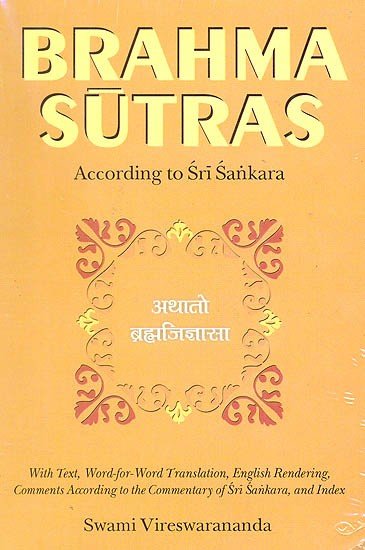Brahma Sutras (Shankara Bhashya)
by Swami Vireshwarananda | 1936 | 124,571 words | ISBN-10: 8175050063
This is the English translation of the Brahma-sutras including the commentary (Bhashya) of Shankara. The Brahma-sutra (or, Vedanta-sutra) is one of the three canonical texts of the Vedanta school of Hindu philosophy and represents an early exposition the Vedantic interpretation of the Upanishads. This edition has the original Sanskrit text, the r...
Chapter IV, Section III, Adhikarana IV
Adhikarana summary: The soul which has attained the Saguna Brahman effects its desires by mere will
Sutra 4,4.8
संकल्पादेव तु, तच्छ्रुतेः ॥ ८ ॥
saṃkalpādeva tu, tacchruteḥ || 8 ||
saṃkalpāt—Through will; eva—only; tu—but; tat-śruteḥ—on account of the scriptures saying that.
8. But through mere will (the released souls attain their purpose), for the scriptures say so.
The question of those who attain Brahmaloka through the worship of the Saguna Brahman by means of Vidyas like the Dahara Vidya is taken up for discussion in this Sutra. In this Vidya it is said, “If he be desirous of the world of the fathers, by his mere will they come to him” (Chh. 8. 2. 1). The question is whether will alone suffices to get the result, or a further operative cause is necessary. This Sutra says that by mere will the result comes, for the Sruti so declares. The will of the released is different from our will, and has the power of producing results without any operative cause.
Sutra 4,4.9
अत एव चानन्याधिपतिः ॥ ९ ॥
ata eva cānanyādhipatiḥ || 9 ||
ata eva—For the very reason; ca—and; ananyādhipatiḥ—he is without a lord.
9. And for this very reason the released soul is without a lord.
A liberated soul is master of himself. “For them there is freedom in all worlds” (Chh. 8. 1. 6).
